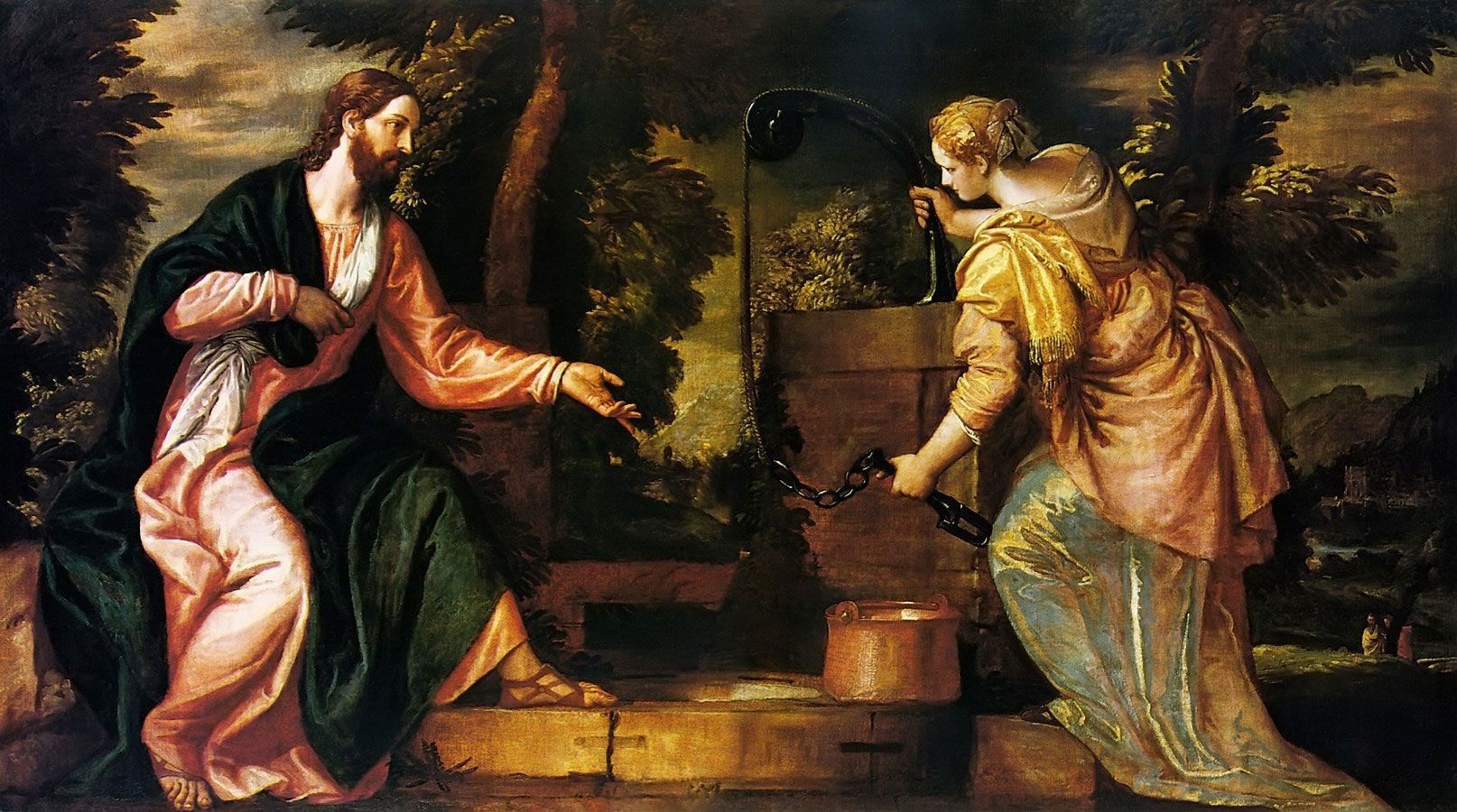Third Sunday of Lent - Fr. Pete Iorio
March 7, 2021 - 11:00 AM
Audio Recording
I would like to review the theme of the first readings during the first three Sundays of Lent. The theme of the Covenant shines through in the Old Testament, and it is important to understand it as the foundation of our relationship with Jesus Christ. A Covenant is not a contract like people do with their cell phone companies, for example. There, your contract says you must pay an amount and you will receive services from the company. It is very businesslike. A Covenant is very different. It is an agreement based on a special relationship that includes mutual respect, care, and a kind of love. We begin by examining the readings.
For example, on the first Sunday of Lent, we find the theme of the Covenant in the book of Genesis. God says to Noah: "Now I establish a covenant with you and with your descendants, with all the animals that accompanied you, birds, cattle and beasts…" It is a Covenant made not only with Noah and his descendants, but with the earth and everything that lives in it.
In the readings for the second Sunday, we read of the Covenant that God made with Abraham. For his faithfulness, God promised him descendants as countless as the stars in the sky and the sands of the seashore. It is a promise that depends on the faith of Abraham. It is a Covenant based on a personal relationship between God and Abraham. It does not depend on laws or rituals. God chooses Abraham, and Abraham knows that he can give himself totally to God’s protection and promises.
Today we have a part of the reading that describes the Covenant that God makes with Moses. It is also based on a personal relationship. God teaches Moses how he and his people can live faithfully to this Covenant - through directives or laws. These directives do not serve to limit the freedom of the people, but to give them the assurance that they are fulfilling the will of God. The responsorial psalm explains how these commands appeared to the people. “They gladden the heart; they are more precious than gold, sweeter than honey.” The law is an expression of wisdom that leads to happiness.
Hopefully, you better understand the concept of the Covenant in the Old Testament. I think we have to understand today's Gospel in this context. We read what is called the cleansing of the Temple. Jesus arrived in Jerusalem at the time of Passover. The city was full of pilgrims - some from nearby towns, others from afar. They came from other countries to celebrate the great feast of Passover in the holiest place in the world. Upon entering the temple, each had to pay taxes in Jewish currency. In this way, temple officials made great profits by exchanging Roman currency for Jewish currency.
In addition, to get an animal without defect, the safest thing was to buy it inside the temple. Therefore, the vendors within the temple precincts enjoyed a virtual monopoly of the market.
Seeing this situation, Jesus gets angry. The Temple is the sacred place where the human person could meet God. It was the place where one could renew the Covenant and commit to living in relationship with God. But the trade and exploitation of the pilgrims was a violation of the meaning of this Covenant. So Jesus acted in a way that declared that, from this moment on, He was the place where the human person can meet God. From this moment, it was through Him that one can enter into a personal relationship with God.
How does that connect with us during this Lent which is the time when the Church invites us to renew the Covenant - a personal relationship that God desires to have with each of us through our baptism? Now is the time to examine our lives and recognize the things that may seem to be expressions of the law, but in truth they take us away from the sacred relationship that we have with God. For example, if we are faithful to Mass, but we treat a relative badly, it is time for a cleansing of our temple. If we follow the rules of fasting, but we refuse to help a neighbor in need, it is time for a cleansing of our temple. If we wear a crucifix around our neck, but our words destroy the reputation of someone, it is time for a cleansing of our temple.
Today we are invited to examine our consciences and our hearts and find what needs to be changed and purified.
